Preparing for a career ‘even before I knew’
IHP alumnus Sean Massa on how study abroad changed his major, his career path, and his worldview
March 3rd, 2022 | IHP, SIT Study Abroad
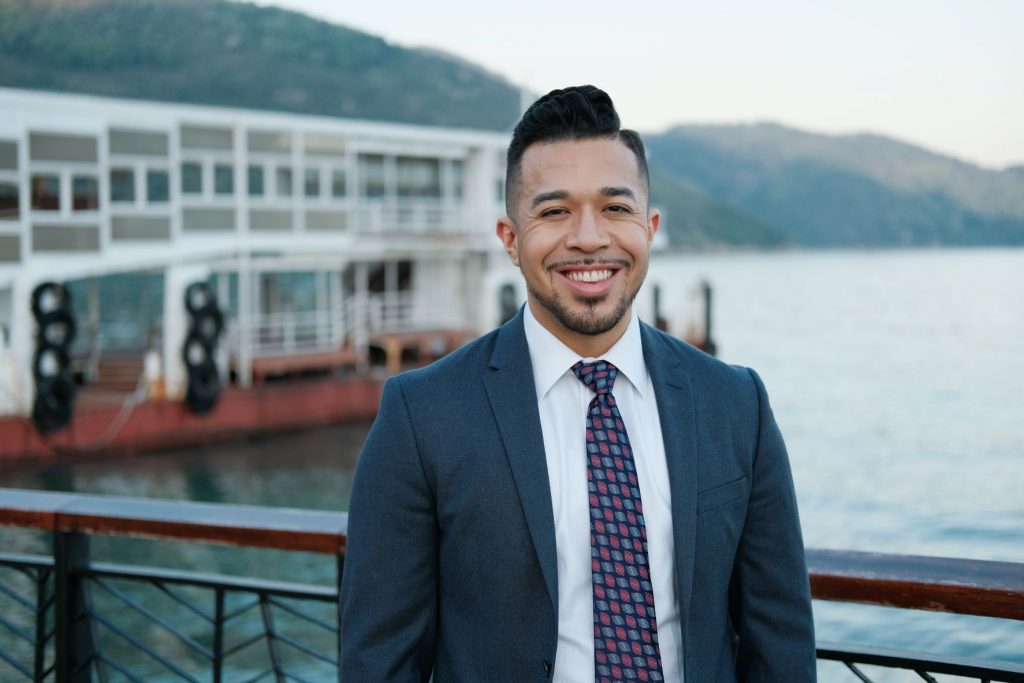
(All photos courtesy of Sean Tristan Massa.)
Sean Tristan Massa is going places.
A graduate of the University of Pennsylvania and Yale University and a 2014 alumnus of SIT’s Health & Community International Honors Program, Massa has just been named a 2022 Charles B. Rangel International Affairs Fellow, which puts him on track to join the U.S. Foreign Service.
Funded by the U.S. Department of State and administered by Howard University, the Rangel Fellowship program aims to enhance the excellence and diversity of the Foreign Service.
When I found SIT and IHP, I did not expect the transformation that happens with experiential learning. ... Even before I knew I was interested in diplomacy, it planted the seeds of this passion.
In a press release about his appointment, Massa credits his passion for diplomacy and engaging other cultures to his experiences studying abroad in Vietnam, South Africa, and Brazil—the three countries included in his IHP program.
Massa is of Mexican, Japanese, Native Hawaiian, and Apache heritage. Until he studied abroad with SIT in 2014, he had only traveled outside the U.S. to Canada and Mexico. Since then, it seems he’s been unstoppable. After his undergraduate studies, he received a Princeton in Asia fellowship to teach at Atma Jaya University in Yogyakarta, Indonesia. Then he moved to Jakarta, where he interned with the UN Information Centre and the UN High Commissioner for Refugees.
Following graduate school at Yale, in 2018, he moved to Hong Kong on a Yale-China internship and volunteered with Amnesty International’s Digital Verification Corps. He speaks Bahasa Indonesia, Spanish, Portuguese, Hawaiian, Mandarin, and some Cantonese.
Massa is one of two SIT alumni in the 2022 Rangel Fellowship cohort of 45. Through the prestigious and highly competitive program, he will complete a third master’s degree plus get extensive professional development opportunities. This summer, he will intern with U.S. Sen. Dianne Feinstein (D-California), and in summer 2023 the State Department will send him overseas to get hands-on experience as an intern at a U.S. embassy or consulate.
We caught up with Massa at midnight in Hong Kong, where he works as an education consultant, to talk about his IHP experience, his new fellowship, and where he hopes to go from there.
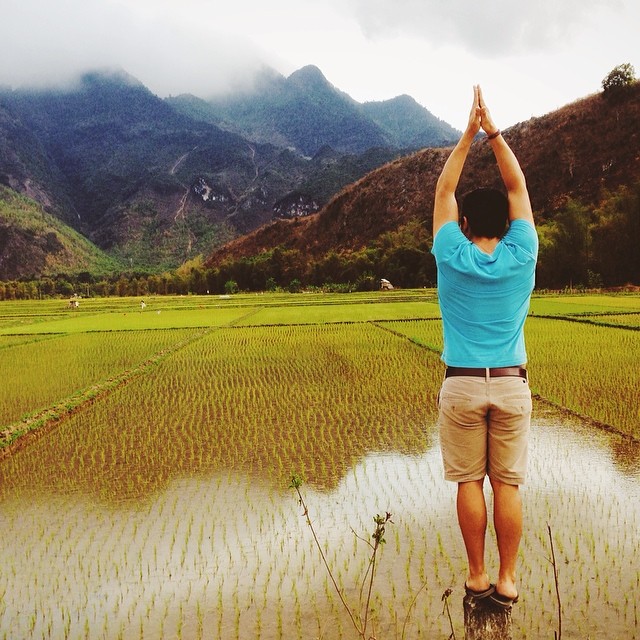
Can you tell us more about your personal and student journey toward this Foreign Service career track?
My path to diplomacy was nonlinear. I had entered college as a neuroscience major. The IHP program was so influential, it was a prominent factor for me changing my major to Health and Societies.
For me, being part of the IHP program was one of my most eye-opening experiences. What I appreciated about the experience was that it gave me a new type of education: experiential learning. At the time, I was pre-med and interested in a potential career in global health. I knew one of the most important things was to get experience and see the world, and my time abroad began to change my perspective.
I grew up in San Jose, California, which is very multicultural. There is a large Vietnamese community there. When I saw that Vietnam was one of the countries on the program, that was appealing to me—I could learn about where many of my neighbors came from. My own ethnic background is Latino, Asian, and indigenous.
What were some of the program’s high points for you?
I have them for every country. In Vietnam, it was definitely my homestay family. I had two homestay brothers who I got to know very well. In the morning before school, they would take me to this pho restaurant to have breakfast together. I kept in touch and visited them in 2015 when I was volunteering and teaching English an hour outside Ho Chi Minh city.
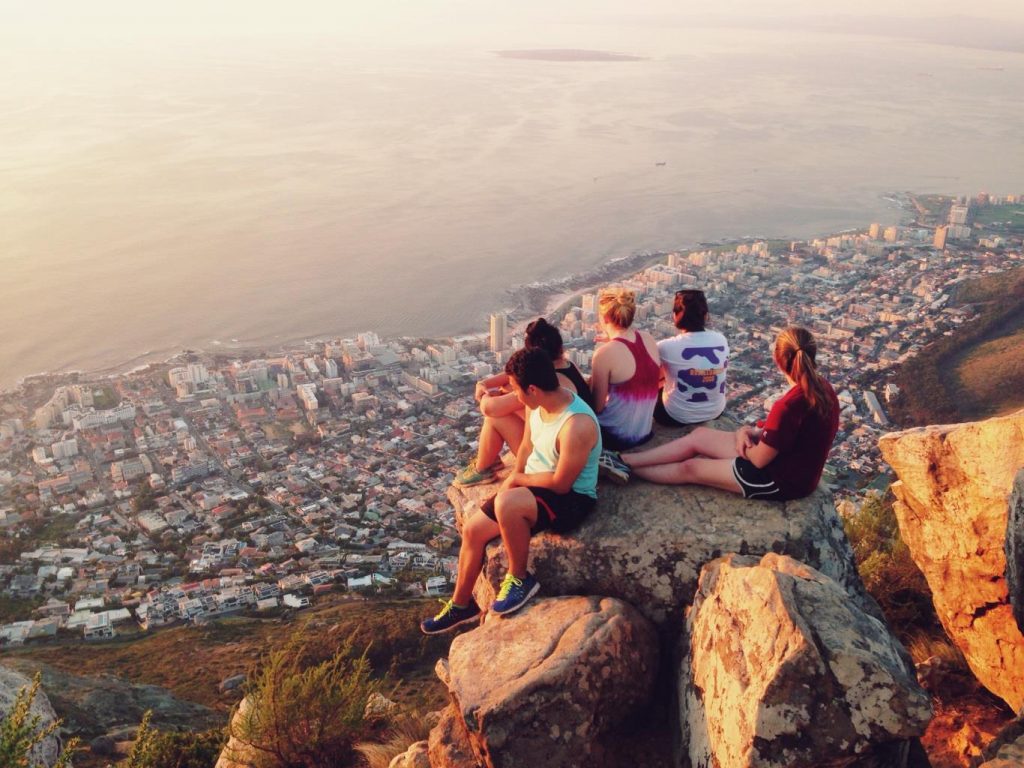
In South Africa, the natural landscape around Cape Town is gorgeous. I would hike to Lion’s Rock or Table Mountain. And, I visited Robben Island, the prison where Nelson Mandela was held. Our classes were at the public library. One day, Archbishop Desmond Tutu was there doing a showcase for his children’s book.
It’s things like that that you can’t find on a syllabus or in a study abroad description.
In a township outside a city called Worcester, my homestay mother was named Olga Macingwane—a very unassuming woman. She showed me and my homestay partner a framed National Geographic magazine with an article about her. She was a victim of a white terrorist bombing. She survived and gained national prominence years later when she went to Pretoria as part of Truth and Reconciliation process and met with her terrorist attacker and forgave him. I recently discovered that after he got out of prison, he ran a marathon and gave her his medal. It’s things like that that you can’t find on a syllabus or in a study abroad description.
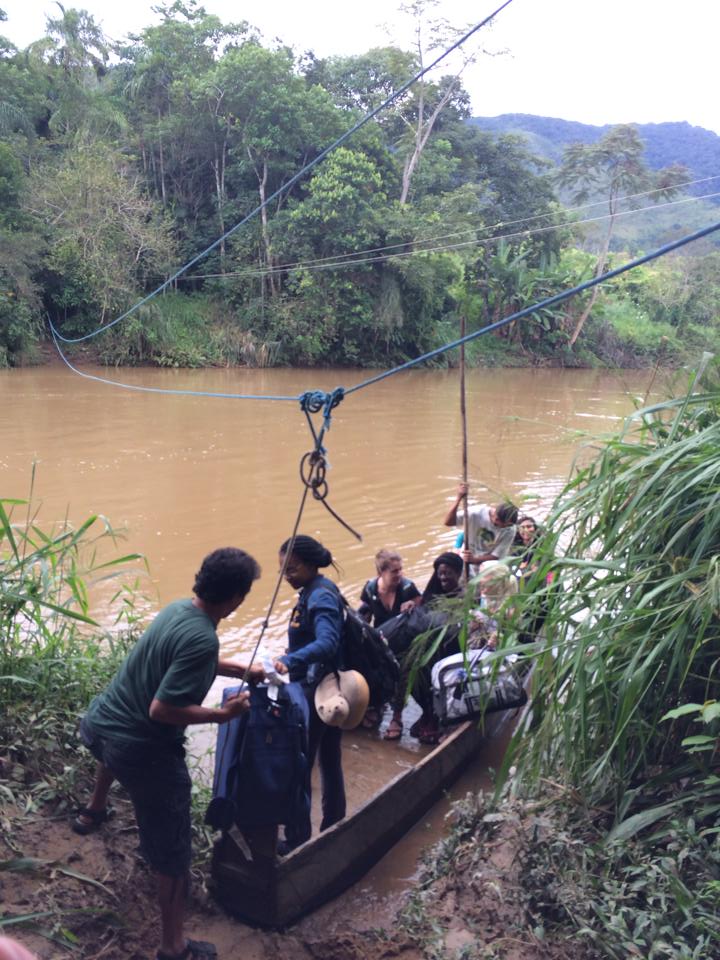
In Brazil, we spent some time outside of Sao Paolo in an agroforestry compound. You had to cross a river on a boat and hike to get there. I remember one meal we had that was all fruits from the land, and snapping a photo of a toucan nearby. Honestly, there are so many to choose from.
When I found SIT and IHP, I did not expect the transformation that happens with experiential learning. That was the pinnacle of my college career. It was a turning point. Even before I knew I was interested in diplomacy, it planted the seeds of this passion.
There are 13 dimensions they look for in a Foreign Service officer. A lot of those qualities were almost identical to what IHP was preparing me for.
There are 13 dimensions they look for in a Foreign Service officer. A lot of those qualities were almost identical to what IHP was preparing me for—maintaining composure, cultural adaptability. By engaging with homestay families, having to overcome language barriers, navigating a foreign city, I was learning skills that were preparing me for a future career I didn’t know I was going to pursue.
Were there any low points for you?
There was a lot to do and see, so much to process that it could be overwhelming at times. You had to make an effort to practice self-care. You naturally want to see everything, but you have to take some time for yourself. By the time we hit our third country, at the very end I was so drained.
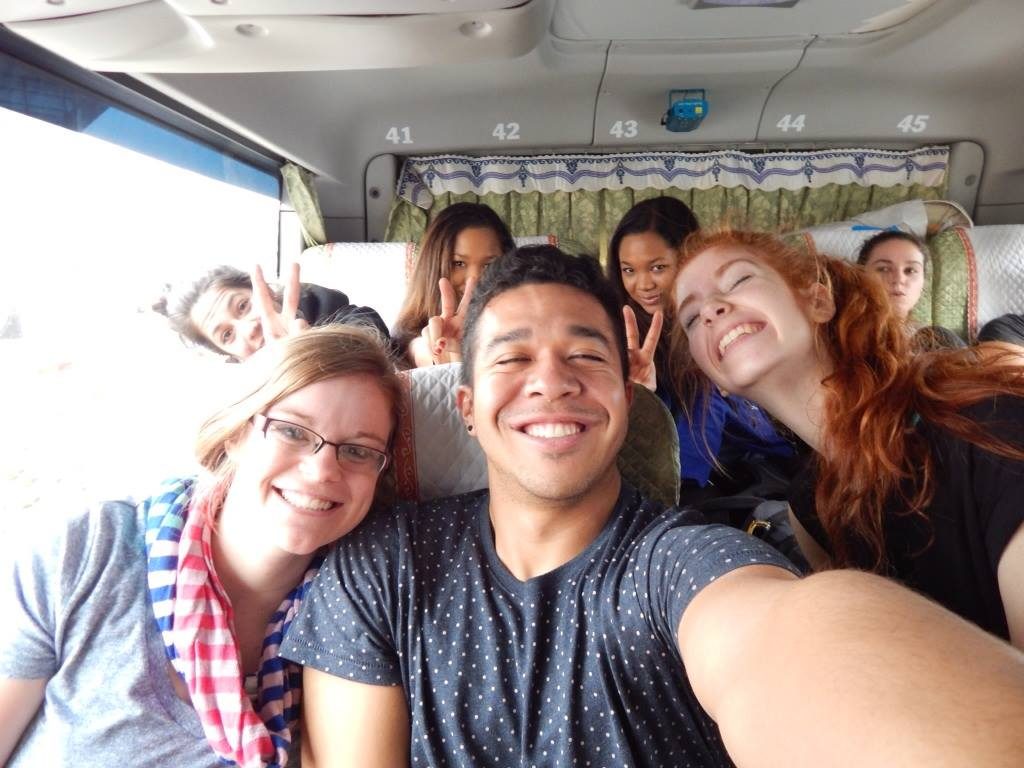
The press release about your fellowship refers to your experience in indigenous and interfaith programming in Philadelphia. Can you tell us more about that?
When I was in my first year of college, I took a seminar called “iBelieve – Interfaith Dialogue and Action.” At the time I was a devout Christian. It was interesting because they took people from different religious backgrounds and in seminar-style, we would discuss different topics. We would have to process the traditions and beliefs we held. We learned that a lot of things brought us together, and we learned to tolerate our differences in a respectful way.
My perspective and religious worldview had changed after meeting so many people who held different religious and spiritual beliefs.
Throughout college, my own beliefs changed. In my senior year, I came full circle and ended up as a teacher’s assistant for that same course. I was a completely different person having studied abroad. My perspective and religious worldview had changed after meeting so many people who held different religious and spiritual beliefs. We had talked to a Buddhist monk in Vietnam, Baptist preachers in South Africa, a shaman in Brazil. After coming back from my study abroad program, my own identity and perspective had changed for the better.
Nowadays, I’m a bit more spiritual than religious. I have found beauty in a lot of religious traditions. I’m grateful for my own religious background in that it taught me notions of compassion and justice, but I’ve also enjoyed aspects of mindfulness in Buddhism. I’ve lived in Indonesia, the world’s largest Muslim majority country, and found a lot of beauty in the practices of Islam, as well.
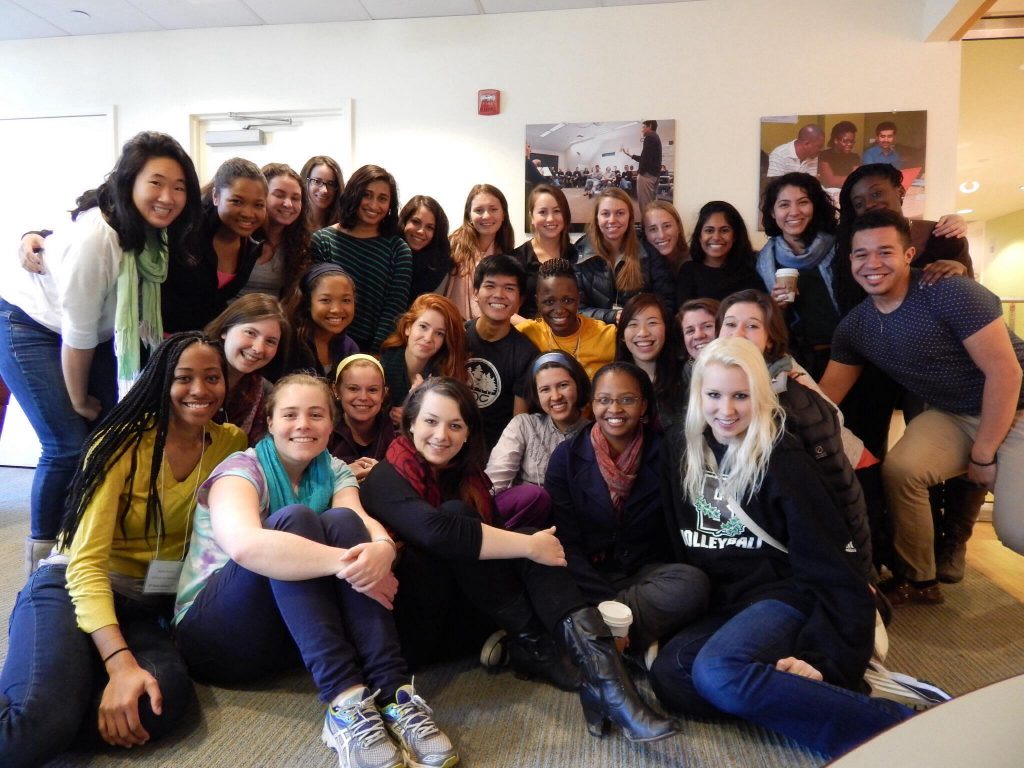
Does your own identity and heritage factor into your decision to pursue this career? Is there much diversity within the U.S. Foreign Service?
Well, the stereotype is pale, male, and Yale. Funny enough, I’m two out of the three. The Foreign Service has had an issue with a lack of representation and there have been a number of special programs to increase diversity—ethnic diversity, gender identity, sexual orientation, and even economic background as a marker of diversity. They recently hired their first diversity and inclusion chief, Ambassador Gina Abercrombie Winstanley. So, right now it is a very exciting time to be involved with the Foreign Service.
When you get to the other end of this career, what will success look like?
In terms of my career, I would love to promote LGBT rights, especially in Asia. My heart is really in Asia. I would also love to serve in Latin America. One thing that even takes me back to IHP—I remember a conversation with my homestay brother in Vietnam. He told me, ‘You don’t look American.’ This prompted this whole conversation about race and what it means.
I would love to contribute to the DEI efforts at the State Department, to be able to show the world that we are a pluralistic nation, that we have a wealth of people from different backgrounds.
I think perhaps he made that comment because his only understanding of America was what he saw in the media. Long term, I would love to contribute to the DEI efforts at the State Department, to be able to show the world that we are a pluralistic nation, that we have a wealth of people from different backgrounds.
From a foreign policy perspective, one of the biggest things that motivated me in this career was that I lived in Hong Kong for three years during the political unrest and protests and the recent shift toward a more authoritarian rule. I saw the people protesting in the streets, and I understand what democracy means to them. I do want to promote these values that our country upholds in terms of democracy, human rights, and freedom. America is in a unique position and has a platform in the world, diplomatically, economically, through humanitarian aid. I want to be at the forefront of that.
Is there anything else you would like to add to this conversation before we let you go?
Sometimes it’s important to be open to different opportunities because a lot that happens is unplanned. You live each day; you adapt and reflect—that’s something you learn in IHP orientation—to reflect on who and where you are.
